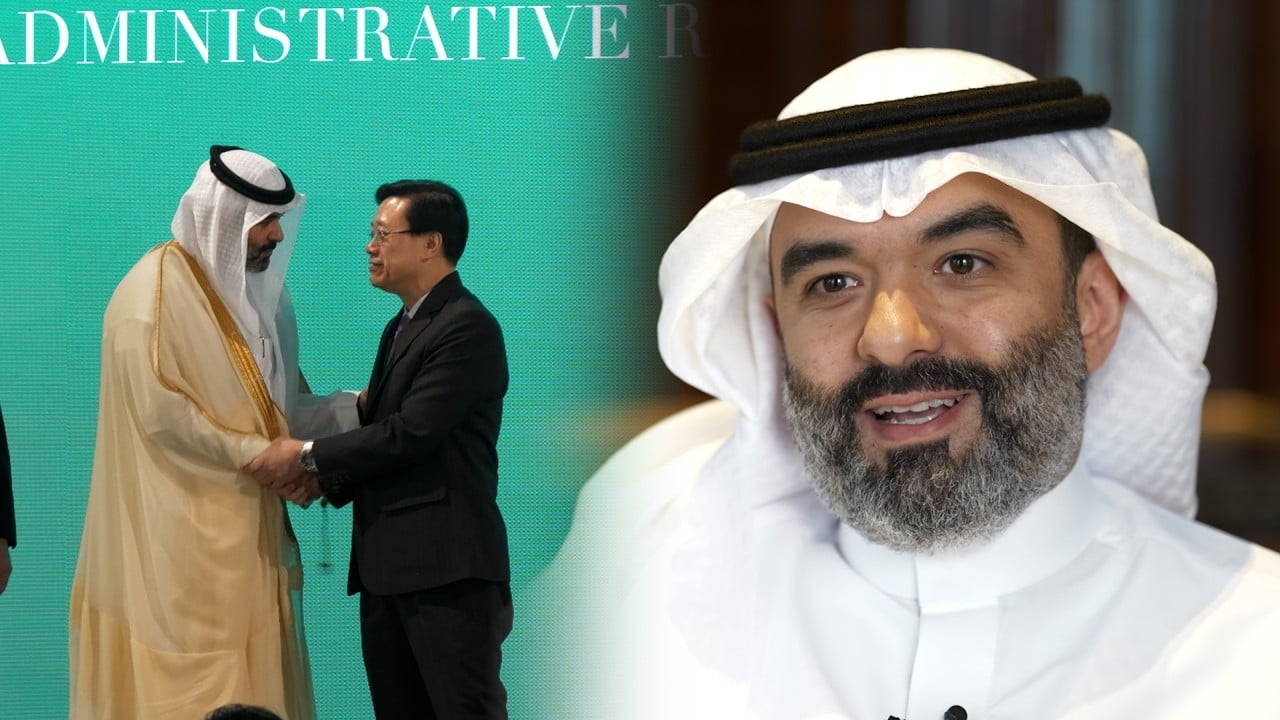
30 Dec China M&A activity is set for a rebound in 2024 amid renewed overseas interest, but it won’t be business as usual. Here’s why
China M&A activity has been on the decline for three years in a row now, according to Dealogic data. But it still accounted for 41 per cent of deals in the Asia-Pacific region in the first half of 2023, according to S&P Global.
The world’s second-largest economy recorded 5,156 deals in 2023, with a combined value of US$301 billion, according to Refinitiv data. This was a nine-year low in terms of deal volume, and a third straight year of decline in volume.
Global M&A: deal makers to miss US$3 trillion mark for first time in 10 years
Global M&A: deal makers to miss US$3 trillion mark for first time in 10 years
“While a slow pickup in 2024 is conceivable, ongoing tensions between China and the United States will be the main factor for inbound M&A activity,” said Plato Yip, vice-chairman of Elion International Investment. “The overall economic climate – both within China and globally – is a key determinant of inbound M&A activity.”
Bazzoni said he is also seeing a big push in outbound environmental, social and corporate governance, and new-energy deals. For instance, top solar panel producers in China are scrambling to get involved in new projects overseas either through M&A capital investment in the form of commodities, or equity, or through joint ventures.
Both Bazzoni and Yip said a few strong and high-profile deals will need to go through for M&A activity to pick up next year.
A sharp decline in equities has affected investor confidence. The MSCI China Index has declined by almost 12 per cent this year, following drops of 23.6 per cent in 2022 and 22.8 per cent in 2021. Hong Kong’s Hang Seng Index has, meanwhile, declined 14 per cent this year.
HSBC may resort to acquisitions to undergird its Asia pivot
HSBC may resort to acquisitions to undergird its Asia pivot
“The M&A market is never divorced from equity capital market conditions, because it affects overall corporate and investor sentiment,” Citi’s Banfield said. “Given the current macroeconomic indicators, including lower consumer demand, investors are waiting for signs that speak to China’s future growth prospects.”
For deal flows to be revived, buyers need to be more confident about growth, which will entice them to allocate more capital to China, said Anthony Siu, partner and co-head of BDA Partners Shanghai.
“On the other hand, sellers need to face the reality of today’s market, which is different from the double-digit growth in the past decades,” he said.
Chinese gamer-platform operator Quwan set for Hong Kong listing via SPAC merger
Chinese gamer-platform operator Quwan set for Hong Kong listing via SPAC merger
Once there is alignment between buyers and sellers, growth expectations will narrow the valuation gap, which in turn will result in more deals being completed, Siu added.
Yet, even in a quiet market, dialogue with companies about their China business remains active, Citi said. Better market conditions, leading to more dialogue between buyers and sellers will set the tone for 2024, Banfield said.
“It is the right time to make investments, with depressed valuation levels and a weaker market,” Banfield said, adding that sellers are adopting a wait-and-watch approach as most do not face any pressure to sell.
He said the valuation expectations of sellers might become more realistic in 2024, leading to more constructive discussions.
On the demand side, the market is waiting for a “spark to light up deal activity”, said David Brown, Asia-Pacific deals leader at PwC Hong Kong.
“There is a huge amount of pent-up demand for M&A deals taking place in China,” he said. “Once activity starts happening again, there will be a rapid uptake in deals.”
Private-equity dry powder soared to an unprecedented US$2.59 trillion globally in 2023 as of December 1, according to S&P Global Market Intelligence and Preqin data.
This has been attributed to a slow year in deal making, with limited opportunities for firms to deploy capital raised in previous years. The dry powder represents close to an 8 per cent increase over the December 2022 total of US$2.39 trillion, according to S&P Global and Preqin.
China’s steadfast focus on technology and innovation has also emerged as a magnet for capital, especially from regions such as the Middle East, said Elion International’s Yip.
China approves Broadcom-VMware merger in sign of thaw with US
China approves Broadcom-VMware merger in sign of thaw with US
Middle Eastern countries that are eager to shift from fossil fuel-based economies are eyeing opportunities for China inbound M&A deals, particularly in the renewable energy, artificial intelligence and biotechnology sectors, Yip said.
Saudi Arabia and the United Arab Emirate were this year, for the first time, among the top 10 buyers of targeted acquisitions of Chinese companies, according to Dealogic. Some notable examples included the purchase of a US$3.6 billion stake in Rongsheng Petro Chemical by Saudi Aramco.
In May, Abu Dhabi’s sovereign wealth fund, Mubadala, venture capital group Sequoia China and private-equity group General Atlantic invested US$2 billion in fast-fashion retailer Shein.
JPMorgan’s top banker predicts a resurgence of M&A deals in China’s EV market
JPMorgan’s top banker predicts a resurgence of M&A deals in China’s EV market
Unlike past cycles, where growth deals made up a large portion of transaction volumes, there will be a shift towards control deals, as the market becomes more mature and sellers are more open to M&A exits, said BDA Partners’ Siu. Buyers favour opportunities with stable cash flows and profitability over high-growth, high cash-burn businesses, he added.
“China is still the world’s No. 2 market, so you cannot ignore that,” said David Chang, the CEO of MindWorks Capital, a venture capital firm based in Hong Kong. Deal activity will pick up only in the second half of the year, as investors wait to see how the macroeconomic situation in mainland China develops in the first half of 2024, he added.
“M&A activity will start popping up when investors start to capitalise in the second half of the year,” Chang said.

